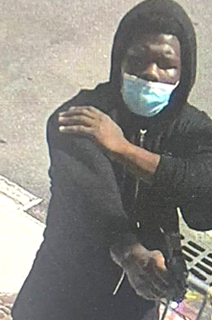His criminal history includes sexual interference with a minor, gross lewdness, uttering death threats, invitation to sexual touching, and disorderly conduct
U.S. Immigration and Customs Enforcement (ICE) law enforcement officers arrested Sumith Gunasekera, a criminal illegal alien sex offender from Sri Lanka, in Detroit on November 12, 2025. During processing, Gunasekera claimed to be employed as an associate professor for Ferris State University in Big Rapids, Michigan.

Gunasekera’s criminal history includes:
- On August 28, 1998, Gunasekera was arrested by the Peel Regional Police in Brampton, Ontario for uttering death threats. He was arrested again just three days later again for invitation to sexual touching and sexual interference. Gunasekera admitted to officers that this charge was related to a minor.
- On November 12, 1998, a criminal court in Brampton, Ontario convicted Gunasekera for utter threat to cause death or bodily harm and sexual interference and sentenced him to 1 month of incarceration and 1 year of probation.
- On September 25, 2003, the Metropolitan Police Department in Las Vegas arrested Gunasekera for open and gross lewdness.
- On January 16, 2004, the Las Vegas Justice Court convicted Gunasekera of disorderly conduct and sentenced him to fines.
“It's sickening that a sex offender was working as a professor on an American college campus and was given access to vulnerable students to potentially victimize them,” said Assistant Secretary Tricia McLaughlin. “Thanks to the brave ICE law enforcement officers, this sicko is behind bars and no longer able to prey on Americans. His days of exploiting the immigration system are OVER. Under President Trump and Secretary Noem, criminals are not welcome in the U.S.”
Gunasekera entered the U.S. in February 1998, left for Canada, and returned later that year on a student visa. It was later discovered, when he applied for a change of status with U.S. Citizenship and Immigration Services (USCIS) in 2012, that he was convicted of crimes in Canada.
Over the years Gunasekera repeatedly attempted to manipulate our immigration system between applications, denials, and appeals despite the convictions in Canada that made him ineligible for legal status in the United States.
Gunasekera remains in ICE custody pending further immigration proceedings.






